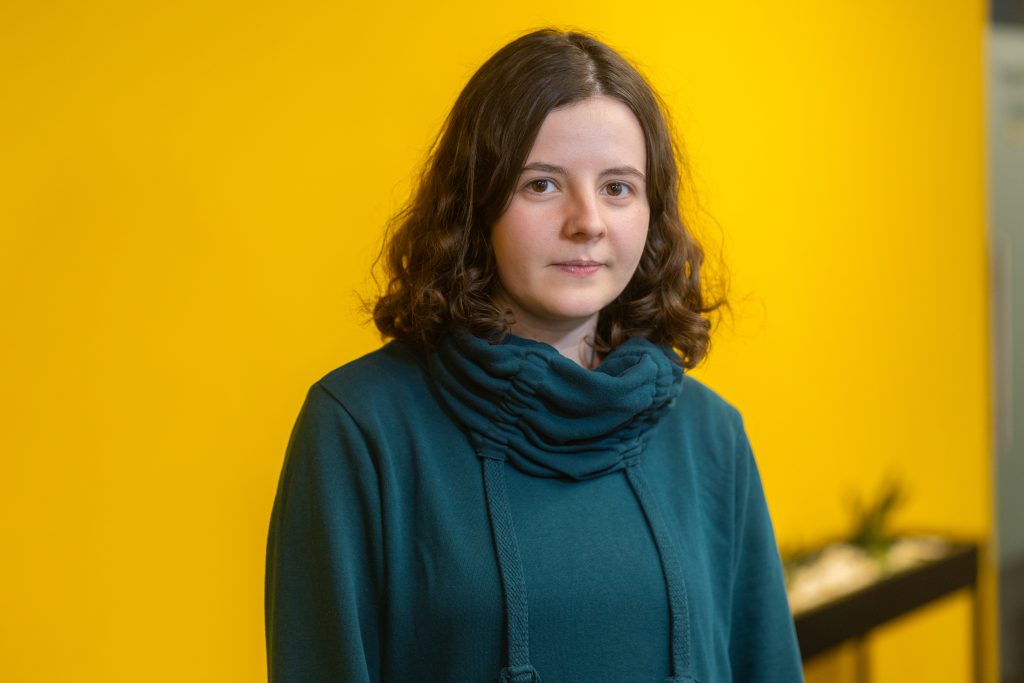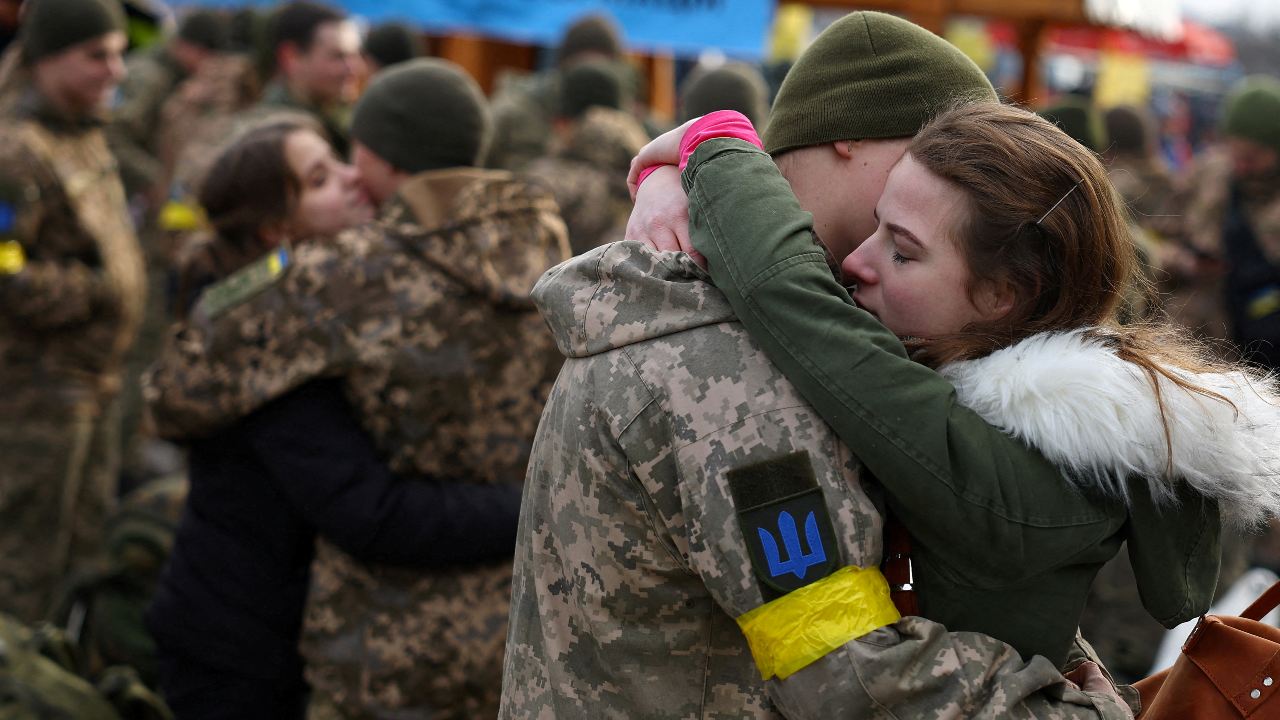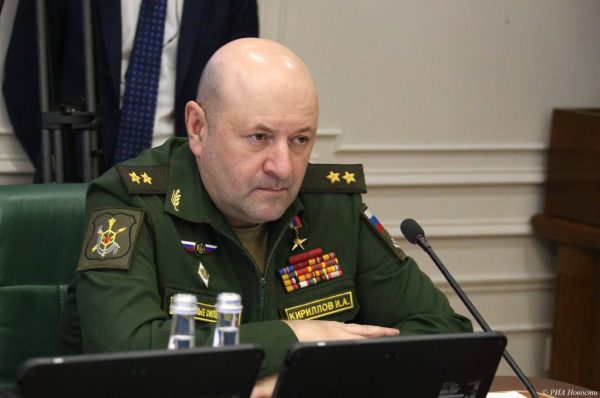Mornings are the worst. Today, once again, I woke and wondered if you’d survived the night. I checked the messenger channels to see when you were online. I checked throughout the day, but you’ve been offline for four days now.
Four days.
Direct communication means so much. When you’re offline, but “last seen” online less than a day ago, I can be calm and fairly sure that you’re okay. Blissfully, you — my husband — tend to be online regularly despite being on active duty.
But now you’re not and I’m worried.
I know you’re on a mission, which usually means being offline for a while. Last time, you were gone for five days. Silent. It felt so long and would have been even longer if you hadn’t had a bad time, and been brought out, shell-shocked.
This time feels different. I am more prepared, and stronger, both inside and out. But then I think, last time you were evacuating the wounded close to the frontlines, and this time you’re actually in the trenches. You’re just a few hundred meters from the Russian positions.

A couple of months ago, I had a text from the wife of your brother-in-arms, saying she hadn’t heard from him in two weeks — and I couldn’t believe she managed to stay calm. Now, through some twist of fate, it’s her husband giving me daily updates as he monitors the unit’s radio signals.
I am so grateful for these tiny bits of information. But there’s a trust issue and it won’t go away. The last time my husband was offline, I had no idea he was in danger. I was told he was some way behind the front doing fine, and that he was offline due to security procedures.
And then four days later, his messages told of mortar shelling and his role in evacuating the wounded from combat areas. From what I now hear, it’s common to omit information or simply lie to the partners of soldiers. I guess people in the military think it’s better this way, so we won’t worry. They’re wrong though — I find it patronizing and unacceptable.
It is a very difficult experience to go through, knowing that your loved one is literally in grave danger and that there isn’t anything you can do about it. But it feels different each time.
This time around, feeling I understand the situation better, and seemingly on the same page with regard to truth as my husband’s brother-in-arms, I feel surprisingly calm.
Rationally, I understand the person who matters most to me could die at any moment and doesn’t have a very good chance of survival given the casualties in his unit over the last couple of weeks. But I barely process it emotionally, only worrying or crying briefly. The burden of the situation feels so heavy that I can analyze it, but not emotionally dive into it.
I’m working, and doing therapy, and I’ve found a few things that distract me. One is needle felting. It’s a wonderful process that requires me to literally stab the wool to create something. I’ve felt a cute little monster for my husband while he’s in the trenches, putting both my care and frustration into it.
Another is volunteering. Small routine tasks to prepare vital goods for those protecting Ukraine require concentration, which doesn’t leave much room for bad thoughts. Plus, it makes me feel like I’m doing something that might help save lives.
Tomorrow will be hard, as I’m doing an interview about a book on women philosophers that my husband and I compiled and translated together before his mobilization. It is a remnant from another life when we worked and lived together. Ours was the kind of marriage where we didn’t spend a day apart in eight years. This time, he won’t be able to attend the interview, and I will miss his presence.
While we are distant, and he is offline, I have some little things that help me bring him a bit closer.
During my last visit, I helped him fill a tactical backpack in case he needed to move at short notice. I bought two identical compasses, the kind I had as a child when foraging for mushrooms with my parents.
His compass is there in case he gets lost and needs to know where to go. But both have another, more sentimental function: I know that, as I am in Kyiv, he is southeast of me.
As I’m writing this piece, I have my compass on the table beside me, so I know where south-east is and what direction he is in.
Our bed faces West, so when I go to sleep, I know that he is behind me and to my left. I imagine him there, just behind my left shoulder.
Hundreds of kilometers away, behind my left shoulder.
Veronika Puhach is a project manager at Amnesty International Ukraine. She is also pursuing a PhD degree in Philosophy at the National University of Kyiv-Mohyla Academy. She has experience working on women’s rights issues and feminism. Within the context of Russia’s war against Ukraine and as a wife of a Ukrainian soldier, she is interested in the experience of those who wait for loved ones, as well as Ukrainian veterans and POWs, with a focus on women’s experiences.
Europe’s Edge is CEPA’s online journal covering critical topics on the foreign policy docket across Europe and North America. All opinions are those of the author and do not necessarily represent the position or views of the institutions they represent or the Center for European Policy Analysis.

From the Ashes: Cultural Identity and National Security in the Age of Conflict
Date: November 19, 2024
Time: 10:00 a.m. – 6:00 p.m. CT




